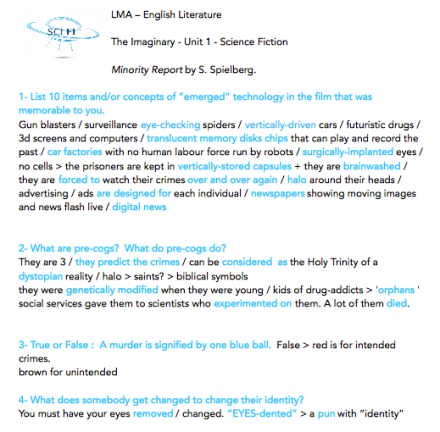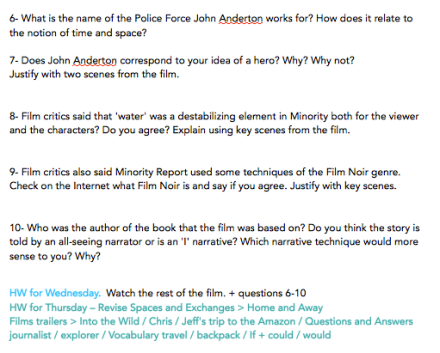MILESTONES IN THE HISTORY OF INDIA
- Hinduism : the oldest religion in the world.
Hinduism is considered as a ‘way of life’ because there isn’t any single Holy Book and there are many different interpretations of the sacred beliefs. Also there is a set of values that dictates the way people consider life and death.
- The Jewel in the crown
The British East India Company was established in the 16th century. They wanted to benefit from exports of spices, silk and cotton so they established a monopoly on the Indian resources.
The reason why there was an uprising in 1857 was because British authorities tried to sell them cartridges which were covered with pig’s fat and that’s against Hindu beliefs.
In 1877 Queen Victoria became the Empress of India.
- Towards Independence
India fought for its independence in the 1920s with Gandhi but the Muslim community was scared the government might be exclusively Hindu so the fight resulted in Civil War and mass migration. Two states were created: Pakistan and Bangladesh. Many people died during this period. India became independent in 1947 after World War II.
India is the world’s largest democracy because the government is modeled on the British parliamentary system. (House of Lords / House of Commons). The biggest issues in India are overpopulation and illiteracy.
In teams ask 10 questions on the key facts / key info from your documents.
Prepare for team battle!
Queens 8
Best 9
Rangers 11
1- When did M. Thatcher become the first women Prime Minister?
1979
2- Why did Gandhi go to South Africa?
He went to S. A to defend the rights of Indians working there.
3- What happened in 1707?
The Act Union created Great Britain.
4- What advantage does the dowry tradition give to groom’s parents?
It compensated for the education of their son.
5- What happened in 1926?
The Commonwealth was set up.
6- How did G. organize the civil right movement?
Boycotts, protest marches called civil disobedience movement.
7- Since when has Wales been united with the British Crown?
Since 1284.
8- Why did lots of women kill themselves?
Because they are harassed by the in-laws.
9- What does Thatcherism mean?
It’s a set of values, free market economy and also political perspectives associated with her vision > emphasizing free markets with restrained government spending and tax cuts coupled with British nationalism both at home and abroad.
10- What is the worst and best caste in India?
Dalits or ‘Untouchables’ > worst / outcasts / lowest caste
Brahmana or Brahmins > best / upper caste
1- Why was Gandhi imprisoned?
Because he fought the British Rule.
2- How do you explain the dowry tradition?
Money / property given to husband’s parents to compensate for their son’s education.
3- What is the Commonwealth? When was it created?
Intergovernmental organization of 54 independents member states > former colonies of The British Empire.
In 1926
4- When did India develop the caste system?
It was developed more then 3 000 years ago.
5- What were Gandhi’s means of protest?
Boycotts, hunger strikes, marches > civil disobedience.
6- What are the values defended by the Commonwealth?
Equal status, no intervention / subordination of one country to the other )
7- Why did a Hindu fanatic killed gandhi?
Because he refused the idea of tolerance between all the religions.
8- Who is the head of the Commonwealth?
Queen Elizabeth 2
9- What was M. Thatcher’s aim?
Modernize British economy / promote free-market
10- Why was there a war in Ireland?
People were divided between nationalists ( catholic) and loyalists (anglicans/ protestants) > civil war related to Independence.
1- What did Gandhi do against Britain?
He organized boycotts, marches and hunger strikes. > civil disobedience
2- What is the consequence of the dowry tradition?
– A lot of girls die > commit suicide / harassed / tortured
- Women don’t want to have daughters anymore.
- Husbands get monney
3- What is the Commonwealth and why is it special?
Intergovernmental organization > 54 independent states / common values
4- What is the most important changes made by Thatcher?
Low Taxes – privatization – promoted the free market
5- Who is the head of the Common Wealth?
Queen Elizabeth 2
6- Where did castes come from?
Hindu priest 3000 years ago.
7- When did Gandhi die?
He died in 1948. He was assassinated.
8- Do castes still exist?
Yes they do, especially in rural areas, discriminations still prevail.
9- When did India became independent?
1947
10- What happens if the wife’s family doesn’t keep her promise?
Set themselves on fire / are harassed / tortured


